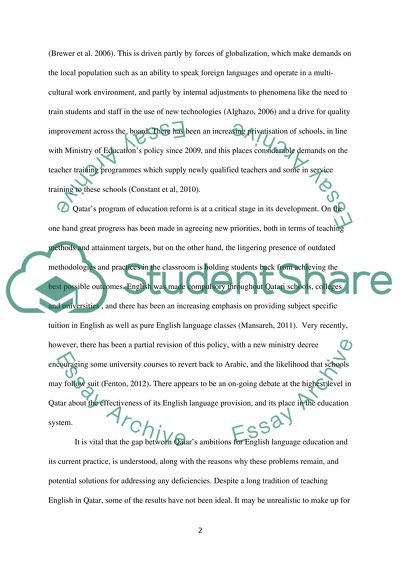Cite this document
(“Teacher education in Qatar Research Paper Example | Topics and Well Written Essays - 2000 words”, n.d.)
Retrieved from https://studentshare.org/education/1402282-teacher-education-in-qatar
Retrieved from https://studentshare.org/education/1402282-teacher-education-in-qatar
(Teacher Education in Qatar Research Paper Example | Topics and Well Written Essays - 2000 Words)
https://studentshare.org/education/1402282-teacher-education-in-qatar.
https://studentshare.org/education/1402282-teacher-education-in-qatar.
“Teacher Education in Qatar Research Paper Example | Topics and Well Written Essays - 2000 Words”, n.d. https://studentshare.org/education/1402282-teacher-education-in-qatar.


